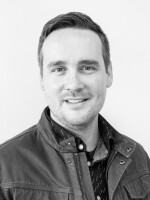It's the second week in June 2025. Our theme of the month is solstice. On today's episode of Something I Heard, I ask Anthony Doerr about time. About the intersection of the solstice with our cultural concept of time, in particular. One being an observable, astronomical phenomenon we don’t really observe anymore so much as note. And the other, time, an abstraction that nevertheless dictates our day-to-day life. How has it affected us?
"We evolved to change with the seasons," Doerr says. "For so many cultures and so many of our ancestors, the solstice was this incredible moment. We were drenched with light and bounty. The winter solstice was the antipode... [It] was this other world in which night dominated. The hours of night would stretch on forever and the hours of daylight in June would just be so rich and sweet."
"Those were the moments where you could probably feed your family and feel safest and night didn't encroach on your lives," he says.
Keeping with the theme, Doerr shares "Keeping Quiet," by the great Pablo Neruda.
Neruda was a Chilean poet and diplomat who won the 1971 Nobel Prize in Literature. Celebrated novelist Gabriel García Márquez once dubbed him "the greatest poet of the 20th century in any language."
Anthony Doerr is our guest this month on Something I Heard. Doerr is author of the novel Cloud Cuckoo Land, a pair of celebrated story collections, and All the Light We Cannot See, which won the 2014 Pulitzer Prize for Fiction.



